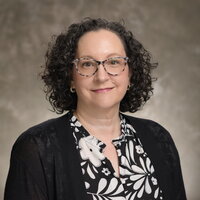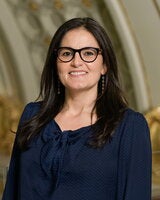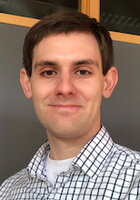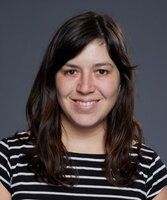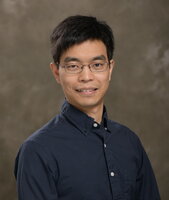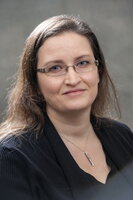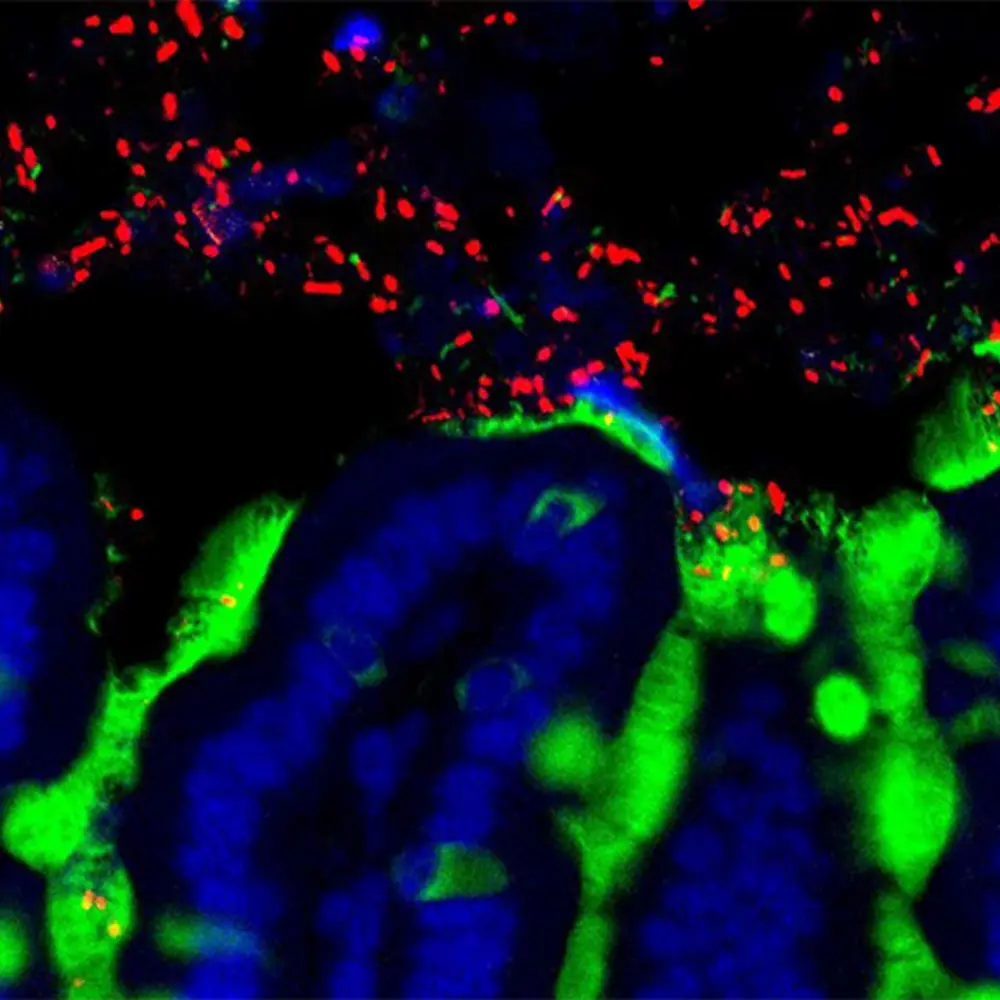
With support and leadership from the School of Molecular & Cellular Biology, the Microbial Systems Initiative (MSI) aims to harness the existing and emerging strengths of the microbial sciences community and establish the University of Illinois Urbana-Champaign as a leading center that will continue to attract and nurture a diverse, creative, and connected group of faculty and trainees.
Microbes are everywhere, and they do amazing things, so perhaps it’s not surprising that everyone from animal scientists to physicists studies them. Since its launch in 2019, the Microbial Systems Initiative at the University of Illinois Urbana-Champaign has been bringing together passionate scientists and educators from across campus. Thanks to a coordinated recruiting effort, their ranks are growing. This year, nine tenure-track faculty who study microbial systems or microbiomes have joined the university. These new hires will conduct research in fundamental microbiology, modeling, virology, big data, the human microbiome, and infection biology.
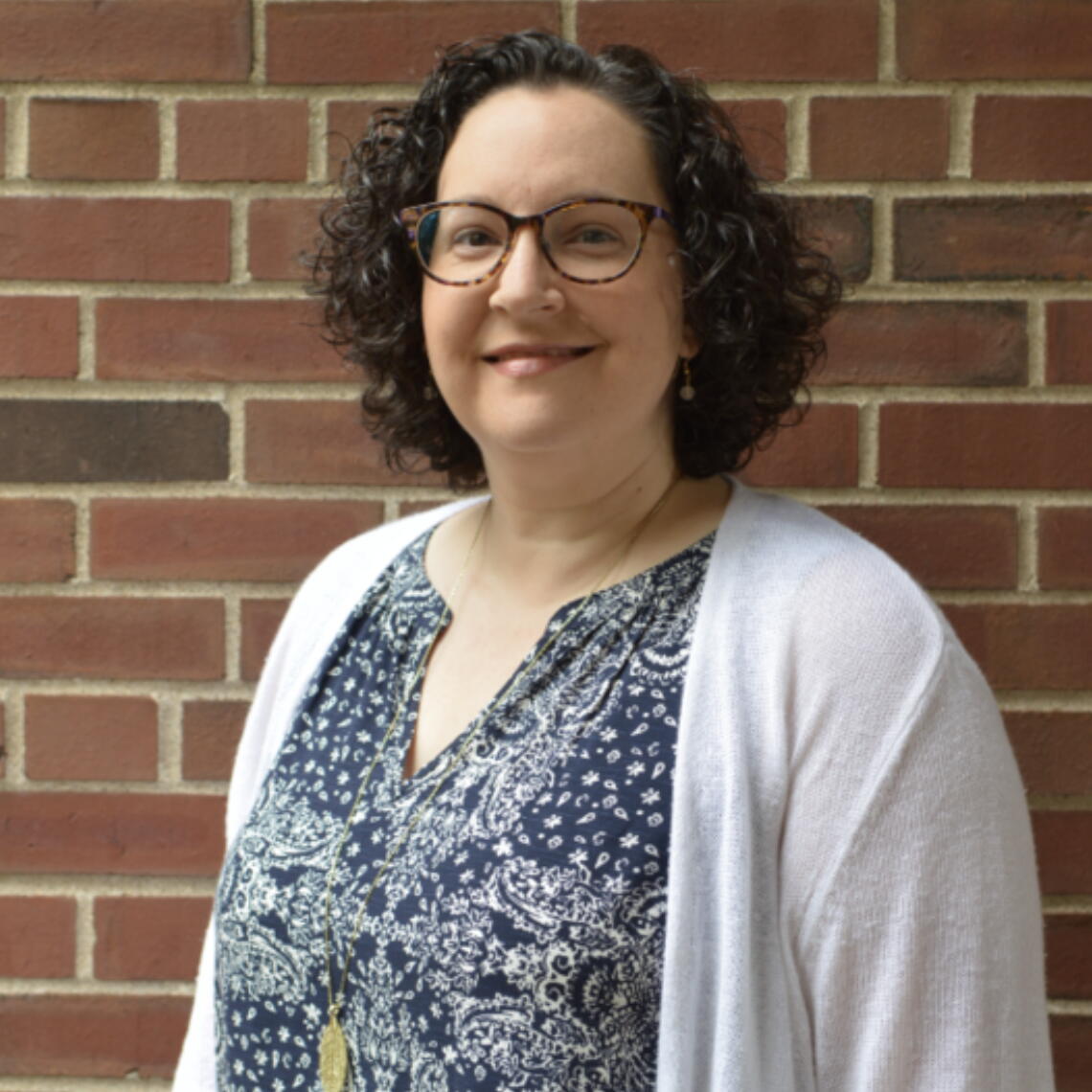
“Collectively, these nine new faculty bring so many different strengths to the table. They are all top-notch scientists and I’m looking forward to seeing where their research goes,” said Cari Vanderpool, professor of microbiology and MSI director.
The initiative originated from discussions among faculty starting in 2018. Illinois has long been home to innovative researchers and students in microbiology and, although collaboration is common, researchers were not as well-connected to each other as they could be, Vanderpool said. She and other faculty organizers envisioned creating a “nucleus for a broad, cross campus community.” Those early discussions led to a March 2019 workshop which brought together about 100 people from two dozen departments and featured lightning talks from both newer and established investigators. The symposium was a successful networking and community-building event that generated a lot of enthusiasm and the momentum to continue building the MSI, Vanderpool said.
With interest and support from researchers and departments from five colleges, organizers drafted a plan to help campus build its strength in microbial research. They requested, and received, financial support through the university’s Investment for Growth program for an integrated cluster hire, with the goal of building a cohort of faculty to rapidly increase strength in this research area.
“We wanted to bring people in who will collaborate with one another and with researchers already on our campus to make a larger impact,” Vanderpool said. The thinking behind the proposal was that a coordinated hiring strategy could jumpstart relationships to accelerate the establishment of collaborative research efforts. “We are greater than the sum of all parts,” she said.
Faculty joining this fall include Jacob Allen (kinesiology and community health), Adrienne Antonson (animal sciences), Christopher Gaulke (pathobiology), Asma Hatoum-Aslan (microbiology), Pamela Martinez (microbiology and statistics), Paola Mera (microbiology), Joseph Sanfilippo (biochemistry), Shulei Wang (statistics), and Nicholas Wu (biochemistry). Many will also be involved in research themes in the Carl R. Woese Institute for Genomic Biology. Features on the new faculty can be found on the MSI website.
In Fall 2020 MSI also announced the appointment of bioengineering professor Shannon Sirk as associate director. Sirk, who has been involved with the MSI since its beginning, will focus on mentoring and training programs and resources for early career scientists and junior faculty.
“We are thrilled to welcome such a diverse group of talented researchers to our campus and to the MSI; our goal is to provide as much support as possible to ensure their early and continued success here,” Sirk said.
In addition to developing its new faculty, MSI works to nurture and connect undergraduates, graduate students, and postdocs who study microbiology through support of microERA, the Microbial Early Career Researchers Association. Last fall, the group organized a symposium which featured trainees delivering posters and flash talks as well as a keynote address from Dr. Andrew Kau, a professor of medicine at Washington University School of Medicine in St. Louis. During the COVID-19 pandemic, microERA has continued to host an array of virtual events, including research seminars from trainees representing departments across the university (biochemistry, bioengineering, chemical and biomolecular engineering, food science and human nutrition, microbiology, and physics); several thirty-minute “coffee break” sessions for members to informally engage with each other; and professional development sessions with topics ranging from websites to wellness.
“As a graduate student, it is really easy to become hyper-focused on your specific area of study, and microERA has helped me step back and appreciate the broader picture while also utilizing the expertise of trainees from different departments across campus with one united interest, the study of microbes!” said microbiology graduate student Katie Frye, one of microERA’s organizers.
The success of microERA illustrates the enthusiastic and diverse pool of talent of microbial sciences trainees at the university, Vanderpool said. To further develop this talent, MSI plans to establish new themed training grants to expand support for interdisciplinary training of undergraduates, graduate students, and postdoctoral researchers from multiple units. Future plans also include developing a master’s degree program that provides training in the fundamentals of microbiology along with training in genomic and biocomputational methods used to interrogate complex microbial systems.
MSI started from a foundation of excellence in microbial sciences distributed across many campus colleges and institutes as an initiative to bring people together through meaningful and ongoing scientific interactions, Vanderpool said.
“We have a long view of building a robust and connected community,” Vanderpool said. MSI will continue to invest in mentoring and training of early career researchers, develop innovative educational and training programs, and host community- and collaboration-building events to stimulate new research directions.
In Spring 2021, MSI will host an online conference featuring the new faculty who have joined the University of Illinois. Watch the MSI newsletter and MSI Twitter feed for upcoming details.
